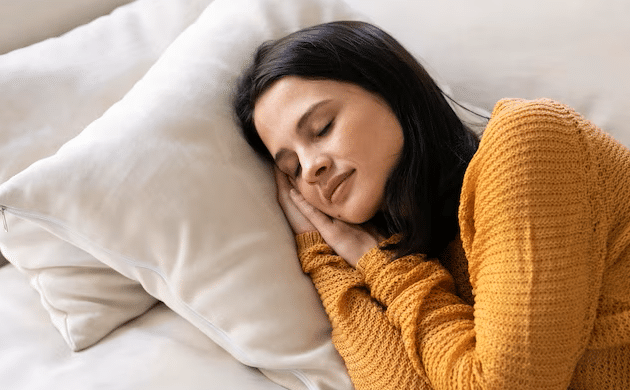Sleep Better Naturally
10 Herbal Remedies to Improve Your Sleep Quality and Recharge Your Energy
Do you ever feel like no matter how long you sleep, you wake up feeling groggy and unrefreshed? Or maybe you struggle to fall asleep at night and end up tossing and turning until the early hours of the morning. These are common problems that many people face, but the good news is that there are natural remedies that can help improve your sleep quality and recharge your energy.
Sleep is essential for overall health and well-being, and the negative effects of not getting enough sleep can be detrimental to your health. Lack of sleep can lead to irritability, mood swings, difficulty concentrating, and even an increased risk of certain health conditions. That's why it's so important to prioritize getting a good night's sleep.
One natural and effective way to improve sleep quality is through herbal remedies. Herbal remedies have been used for centuries to treat various ailments and promote better health, and they can be a great alternative to prescription medications. Not only are they natural, but they also come with fewer side effects.
In the following sections, we'll discuss ten herbal remedies that can help improve your sleep quality and recharge your energy. But first, let's take a closer look at why herbal remedies are a great option for better sleep.
Why Herbal Remedies for Better Sleep?
Herbal remedies offer a natural alternative to prescription medications, which can often come with unwanted side effects. Many people prefer to use herbal remedies because they are gentler on the body and have been used for centuries to treat various ailments.
Another benefit of herbal remedies is that they often work in a more holistic way. Rather than just targeting one symptom or condition, herbal remedies can address multiple factors that may be affecting your sleep, such as stress, anxiety, and hormonal imbalances.
In addition, many herbal remedies have been scientifically studied and shown to be effective in improving sleep quality. For example, chamomile tea has been shown to reduce symptoms of insomnia and improve sleep quality in various studies.
What to Expect from Herbal Remedies
It's important to note that herbal remedies may not work for everyone, and it may take some time to see results. Unlike prescription medications, herbal remedies are not designed to provide immediate relief. Instead, they work gradually to help restore balance to the body and promote better overall health.
When using herbal remedies, it's also important to be patient and consistent. You may need to experiment with different remedies and dosages to find what works best for you. And remember, herbal remedies are not a substitute for healthy sleep habits, such as sticking to a regular sleep schedule and creating a comfortable sleep environment.
10 Herbal Remedies to Improve Sleep Quality
Now that we've discussed why herbal remedies can be a great option for better sleep, let's take a closer look at ten specific remedies that you can try.
- Chamomile: Chamomile is a popular herb that has been used for centuries to promote relaxation and improve sleep quality. Drinking chamomile tea before bed has been shown to reduce symptoms of insomnia and improve overall sleep quality.
- Valerian root: Valerian root is a powerful herb that has been used for centuries to treat sleep disorders and anxiety. Studies have shown that valerian root can improve sleep quality and reduce the amount of time it takes to fall asleep.
- Passionflower: Passionflower is a calming herb that has been used for centuries to treat anxiety and promote relaxation. Studies have shown that passionflower can improve sleep quality and reduce symptoms of insomnia.
- Lavender: Lavender is a popular essential oil that is known for its calming properties. Diffusing lavender oil before bed or using a lavender-scented pillow spray can help promote relaxation and improve sleep quality.
- Lemon balm: Lemon balm is a member of the mint family that has been used for centuries to treat anxiety and promote relaxation. Studies have shown that lemon balm can improve sleep quality and reduce symptoms of insomnia.
- Ashwagandha: Ashwagandha is an adaptogenic herb that has been used for centuries to help the body cope with stress. Studies have shown that ashwagandha can improve sleep quality and reduce symptoms of anxiety and stress.
- Magnesium: Magnesium is an essential mineral that plays a role in many bodily functions, including sleep. Studies have shown that magnesium can improve sleep quality and reduce symptoms of insomnia.
- California Poppy: California Poppy is a gentle sedative herb that has been used for centuries to promote relaxation and reduce anxiety. Studies have shown that California Poppy can improve sleep quality and reduce symptoms of insomnia.
- Skullcap: Skullcap is a calming herb that has been used for centuries to treat anxiety and promote relaxation. Studies have shown that skullcaps can improve sleep quality and reduce symptoms of insomnia.
- Kava: Kava is a plant native to the South Pacific that has been used for centuries to promote relaxation and reduce anxiety. Studies have shown that kava can improve sleep quality and reduce symptoms of insomnia.
By incorporating these herbal remedies into your routine, you may be able to improve your sleep quality and recharge your energy in a natural and effective way. Remember to be patient and consistent, and don't be afraid to experiment with different remedies to find what works best for you.

Tips for Better Sleep Habits
In addition to incorporating herbal remedies into your routine, there are several general tips you can follow to improve your sleep habits and maximize the benefits of these natural remedies.
- Stick to a sleep schedule: Try to go to bed and wake up at the same time every day, even on weekends. This can help regulate your body's natural sleep-wake cycle and promote better sleep.
- Create a sleep-friendly environment: Make sure your bedroom is cool, dark, and quiet. Consider using blackout curtains, earplugs, or a white noise machine to create a comfortable sleep environment.
- Avoid electronic devices before bed: The blue light emitted by electronic devices can interfere with your body's natural production of melatonin, a hormone that regulates sleep. Try to avoid using electronic devices for at least an hour before bed.
- Establish a bedtime routine: Develop a relaxing bedtime routine to help signal to your body that it's time to sleep. This could include taking a warm bath, practicing relaxation techniques like deep breathing, or reading a book.
- Exercise regularly: Regular exercise can help improve sleep quality and reduce symptoms of insomnia. Aim for at least 30 minutes of moderate exercise most days of the week.
- Watch what you eat and drink: Avoid eating heavy meals or drinking caffeine or alcohol close to bedtime, as these can interfere with sleep. Instead, opt for a light snack or herbal tea.
- Manage stress: Stress and anxiety can interfere with sleep, so it's important to find healthy ways to manage stress. This could include practicing relaxation techniques like meditation or yoga or talking to a therapist.
By combining these tips with the herbal remedies discussed in this article, you can improve your sleep quality and wake up feeling refreshed and rejuvenated. Remember to be patient and consistent, and don't be afraid to experiment with different remedies and habits to find what works best for you.
In conclusion, getting a good night's sleep is essential for overall health and well-being. Herbal remedies can be a natural and effective way to improve sleep quality and recharge your energy, and by incorporating them into your routine along with healthy sleep habits, you can maximize their benefits. So go ahead and give some of these herbal remedies a try – your body will thank you for it!

